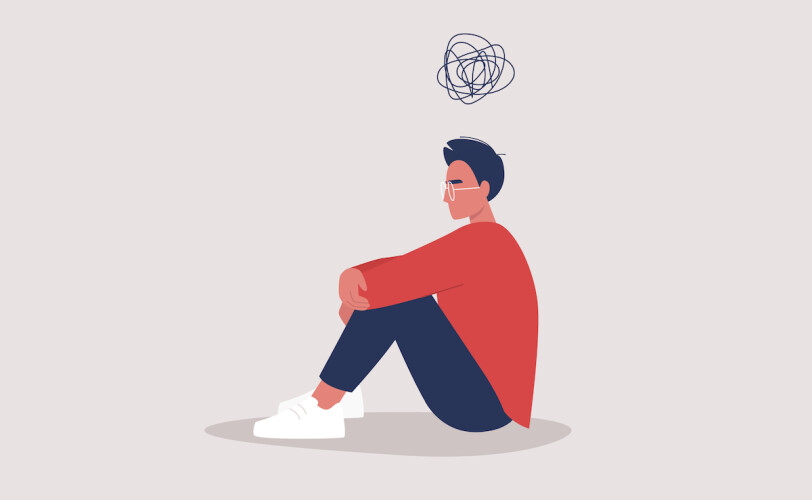Ways to deal with panic attacks
Nowadays more and more people suffer from panic attacks. Everyone knows life is not easy and panic attacks could be a reaction to difficulties we have to face and obstacles we have to overcome.

Learning to confront the symptoms of a panic attack may be difficult. It takes time, courage and practice but with the right support and the right information you can learn how to cope with it. If we come to know why we feel as we do we can plan ways of overcoming our anxiety and panic and rebuilding confidence.
During a panic attack we often feel faint, but it is important to know that actual fainting is extremely rare. We must be aware that during a panic attack our heart rate speeds up and our brain is getting enough oxygen so we are very unlikely to faint. After several repeated incidents of panic attacks we have the opportunity to try out different techniques and check what is most helpful. This is where self-help techniques work well.
Many websites offer interactive self-help and there are several good self-help organisations out there. But seeking help from others such as health care practitioners, psychotherapists and counsellors is usually very helpful as well.
Talking therapies such as psychodynamic psychotherapy and/or counselling are effective treatments for panic attacks. These psychological treatments are generally the treatments of choice but they are highly recommended because they can help you search your inner hidden thoughts and memories that could be a trigger for a panic attack.
Psychotherapy and counselling conducted by a professional and supervised psychotherapist and counsellor are one of the most effective available forms of therapy for treating panic attacks. They can also help deal with negative or irrational thinking patterns in order to help to alter the catastrophic thinking in a panic attack. You learn to know that if you feel the panic starting to come on, there are things you can do to stop it.
The vast majority of people who have panic attacks may never get as far as specialised treatment but if self-help is not working the professionals can help suggest ways of dealing with it. They understand the anxiety and panic attack and what might the cause be and they listen to you and offer different types of help.
Usually, the first stop is your GP. They need to rule out physical causes for a panic attack (like an overactive thyroid gland) and they may refer you to a trained counsellor or psychologist for specialist help.
When someone develops a panic disorder this usually severely interferes with their life. Your GP may prescribe an antidepressant (selective serotonin reuptake inhibitor or SSRI). The medication can be a part of the treatment plan and can be used alongside approaches such as psychotherapy or counselling.
Sometimes if there is a very high level of anxiety that threatens to overwhelm us we may be prescribed a short course of benzodiazepines (like diazepam) that have a calming effect but the problem is that such mediation is addictive and should be taken only for a short period of time to get through the crisis.
These treatments can actually reduce the feeling of panic but they are still no substitute for learning to cope with the panic attack.
Having frequent panic attacks can affect a person's life very much and interfere with relationships. It should be taken seriously. Panic attack sufferers may find it impossible to do a lot of things like going out for walks, entering shops, meeting friends and family etc. Unfortunately, there is this added pressure - few people can truly understand what panic attacks are.

What can you do in order to help a partner, a friend or a family member experiencing panic attacks?
Family and friends play an important role in planned treatment of panic attacks. A panic attack arouses the sense of fear, the strong sense that something is wrong and panic sufferers revolve their lives around the panic as there are places they cannot go, things they cannot do. This can also be very hard for their partners, relatives and friends but they can help by being patient and understanding.
Listening to the person and what they have to say, and trying to understand why a person reacts to something with such distress, although it may be demanding, can be a huge reliever. Suggesting that the person should "snap out of it" or "try not to think about it" is unhelpful. A more positive approach is to provide practical support. You can encourage the person to stay as calm as possible, help them to breathe with slower, deeper breaths so that the carbon dioxide level in their blood starts to go up. Engaging in conversation can also help. There are warning signs that a panic attack may be coming like over-breathing, yawning and sighing and if you notice that happening you can help a person by encouraging breathing control.
Finding out more about panic attacks can help you understand the ways of treatment and why the person reacts in that particular way. Your support is vital to help them face their fears. You might encourage them to seek out help and perhaps assist them by finding out about a good psychotherapist or support group.
Overcoming panic attacks is a demanding task. There will be setbacks along the way but with patience and persistence a person will eventually start to rebuild their own confidence and face up to their fears.

Find a therapist dealing with Panic attacks
All therapists are verified professionals






